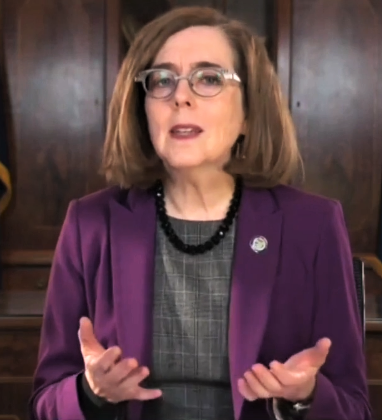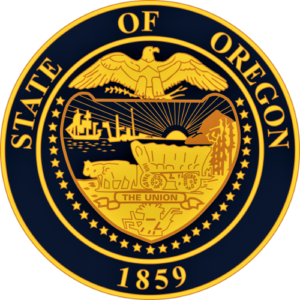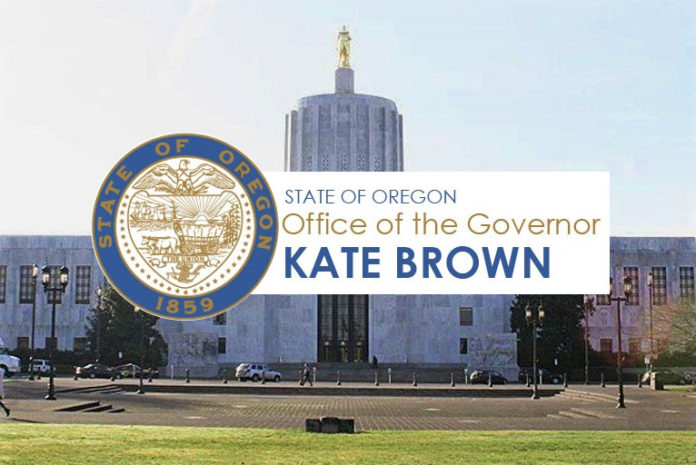Oregon Governor Kate Brown released her recommended budget and policy agenda for 2021-23, focuses on the key challenges of the public health and economic impacts of the COVID-19 pandemic, recovery from the devastating 2020 wildfire season, and taking steps to end systemic racism and address racial disparities in Oregon.
“2020 has challenged Oregon in unimaginable ways. We have been tested to the core, and the most vital needs of Oregon families — health, safety, education, housing, and the ability to learn a living — have all been challenged in new ways,” said Governor Brown. “I have been awe-inspired by Oregonians who have stepped up at every turn to protect their friends, families and neighbors. The compassionate spirit of our state has shined through. Oregon has proven to be a port in the storm.”
“Through it all, we are determined to rise, and rebuild. And as we do, we must ensure the future is a just one; that we create an Oregon where everyone has the opportunity to thrive. Where every voice is heard.”
In 2020, Governor Brown convened a Racial Justice Council with leaders from Oregon’s Black, Indigenous, Latino, Latina, Latinx, Asian, Pacific Islander, immigrant, refugee, Native American, and Tribal communities to develop specific investments and policy proposals to begin to dismantle systemic racism in Oregon. Those proposals are interwoven throughout the Governor’s recommended budget and policy agenda.
The Governor’s main budget and policy areas include:
- Ensuring all Oregonians’ basic needs are met. After a year in which Oregon families have had their daily lives upended, this budget prioritizes making sure Oregonians have their most basic needs met: a warm, safe, dry, affordable, and accessible place to call home, access to health care, child care for working parents, K-12 schools, and COVID-19 relief resources.
Housing and Homelessness. The Governor’s budget invests in housing and homelessness at $65.9 million over the 2019-21 investment levels, and calls on Congress for $350 million in rent assistance. The Governor’s budget also includes $20 million in homeowner assistance, and $250 million in affordable housing development funds.
COVID-19 pandemic response. In addition to applying federal funds towards pandemic response, the Governor’s budget invests $30 million in public health modernization to better prepare Oregon’s public health system to respond to events like the current pandemic. Other pandemic-related investments are included throughout the budget.

Long-term care. The Governor’s budget includes $17.9 million in investments in a range of strategies to protect seniors living in assisted living and nursing homes from COVID-19.
Health care. The Governor’s budget also addresses the challenge of adequately, sustainably, and equitably funding our health care system during a once-in-a-hundred-year public health emergency. Largely due to the pandemic, Oregon faces a $718 million budget gap for the Oregon Health Plan–coverage which provides an essential bridge to reducing health disparities by improving access to care and protecting low-income families from financial ruin. In addition, Coronavirus Relief Funds that have been used to fund COVID-19 response efforts will expire on December 31. The Governor’s budget helps close that gap through cost savings and an expected extension of enhanced Federal Medical Assistance Percentage (FMAP) funding.
Behavioral health. The Governor’s budget also makes investments in behavioral health and substance use disorder resources, informed by the recommendations from the Alcohol and Drug Policy Commission (ADPC) Strategic Plan, the Tribal Behavioral Health Strategic Plan, the Governor’s Behavioral Health Advisory Council, and the Racial Justice Council.
Creating a future we can be proud of: Equity in education and our environment. Building a stronger Oregon requires dismantling the structures of racism in our government systems and programs, and creating an inclusive state that works for everyone.
K-12 education. After a year in which historic disparities in education have been exacerbated by a pandemic and wildfires, the Governor’s budget keeps Oregon’s commitments made to Black, Indigenous, Latino, Latina, and Latinx, Asian, Pacific Islander, Tribal and students of color by fully funding Student Success Act programs and initiatives, as well as grants to schools under the High School Graduation and College and Career Readiness Fund, and funding the State School Fund at $9.1 billion. The Governor’s budget stabilizes education funding by drawing $215 million from the Education Stability Fund for public schools.
Broadband expansion. An investment of $118 million in broadband expansion statewide will connect an additional 50 urban and rural communities that currently lack access. During a pandemic that has necessitated both distance learning for students and remote work for workers, equitable broadband access is critical for educational outcomes and economic opportunity.
Early learning and child care. Recognizing that the first years of a child’s life are critical to lifelong success, the Governor’s budget expands high-quality early care and education programs for 8,000 children through Oregon Pre-K, Early Head Start, Preschool Promise, and the Early Childhood Equity Fund.

Environmental Justice. To address the disproportionate impact of climate change, wildfires, water quality and access, on Black, Indigenous, Latino, Latina, and Latinx, Asian, Pacific Islander, Native American, and Tribal community members, the Governor’s budget invests in the creation of an Office of Environmental Justice, greenhouse gas reduction programs, and equitable water access, and wildfire preparedness, response, and prevention.
Supporting small businesses and workers: COVID-19 and wildfire relief and recovery. The COVID-19 pandemic has had a devastating financial impact on many Oregon businesses and working families. Through no fault of their own, Oregonians have lost jobs, closed businesses, laid off employees, and found themselves struggling to pay rent and make ends meet. Communities impacted by wildfire likewise need support to recover from the devastation of the 2020 fire season.
Worker relief and workplace protection. A key priority of the Governor’s budget and policy agenda is to secure additional coronavirus relief funds from Congress, as current federal relief funds are set to expire on December 31. The Governor’s budget also seeks to maintain funding for the Oregon Worker Relief Fund, Oregon Worker Quarantine Fund, and the COVID-19 temporary paid leave program, to continue to support Oregon workers during this pandemic, regardless of immigration status. The Governor’s budget maintains funding for the Oregon Employment Department to ensure Oregon workers are paid the benefits they are owed, as well as for Oregon OSHA, to ensure workplace protections continue to be enforced. The Governor’s Budget includes $146.4 million to fully modernize the Employment Department’s benefit delivery system and also to implement Paid Family Leave Insurance benefits for Oregon workers.


















